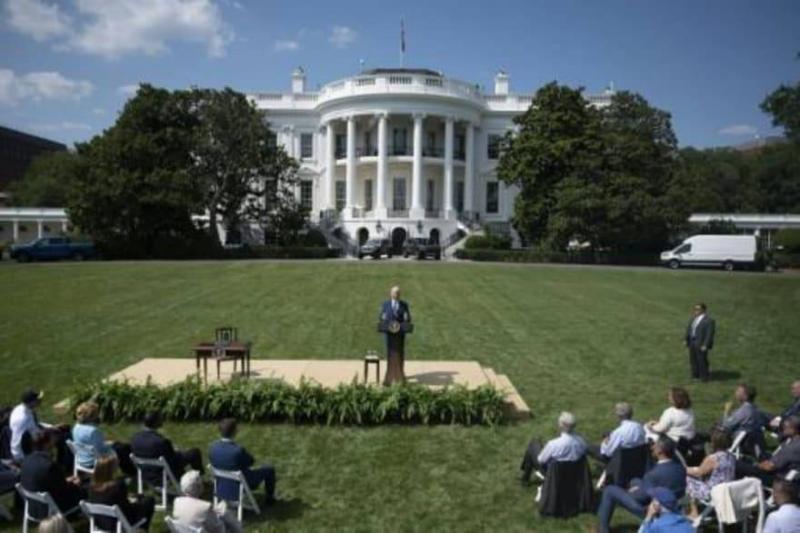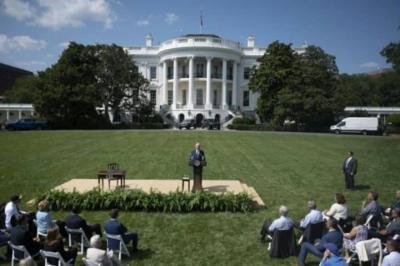In the presence of executives from major automotive companies, President Joe Biden announced on Thursday that half of the cars sold in the United States must be carbon-free by 2030. Biden views this move as a way to compete with China and other countries investing in electric vehicles, while transforming the transportation sector in the U.S., which is the largest source of carbon dioxide emissions in the country. In the White House garden, Biden spoke about electric cars, saying, "It’s a vision for the future that is starting to happen now (...) the future of electric vehicle and electric battery production (...) and electric fuel cells." He added, "It’s electric, and there’s no going back."
Before giving his speech, Biden signed a decree stipulating this goal. Biden's announcement received limited praise from environmental advocates who stressed the need for additional measures due to the worsening climate situation. Katherine Garcia from the Sierra Club felt that this goal is an "important signal to manufacturers" but argued that the required percentage should be increased to sixty percent and accompanied by "the strongest possible clean vehicle standards."
The anticipated increase in the U.S. adoption of electric vehicles, which accounted for only about 2 percent of car sales in 2020, will heavily depend on expanding charging stations and other infrastructure, as well as, to a large extent, convincing Americans to buy these cars. Jessica Caldwell from Edmunds.com stated that major U.S. car manufacturers—General Motors, Ford, and Stellantis—have significantly expanded their investments in electric vehicles, making the goal "probably achievable" by 2030. She added, "But what may be the biggest obstacle we face is consumer acceptance: What will Americans need to be ready to change their car ownership habits and transition to electric vehicles?"
In a joint statement, manufacturers in Detroit expressed their "shared aspirations to achieve sales ranging from forty to fifty percent" of their vehicles. However, they noted that "this transition cannot be achieved" with initiatives like consumer incentives for purchasing electric vehicles and new infrastructure, including a charging network. This comes as Biden proposed an infrastructure plan that would include many of these programs, which the Senate is expected to vote on Saturday.
The United Auto Workers, one of the largest unions in the sector, expressed its support for this move. Its president, Ray Curry, stated in a statement that "union members (...) are ready to build these electric cars, trucks, and the batteries that go into them." The White House excluded Tesla, a leader in the electric vehicle sector, from the invitation to the meeting Biden held to promote the industry. Elon Musk, the owner of Tesla, tweeted about the meeting, which invited the three major American car companies, General Motors, Ford, and Stellantis, saying, "It’s strange that Tesla wasn’t invited."




